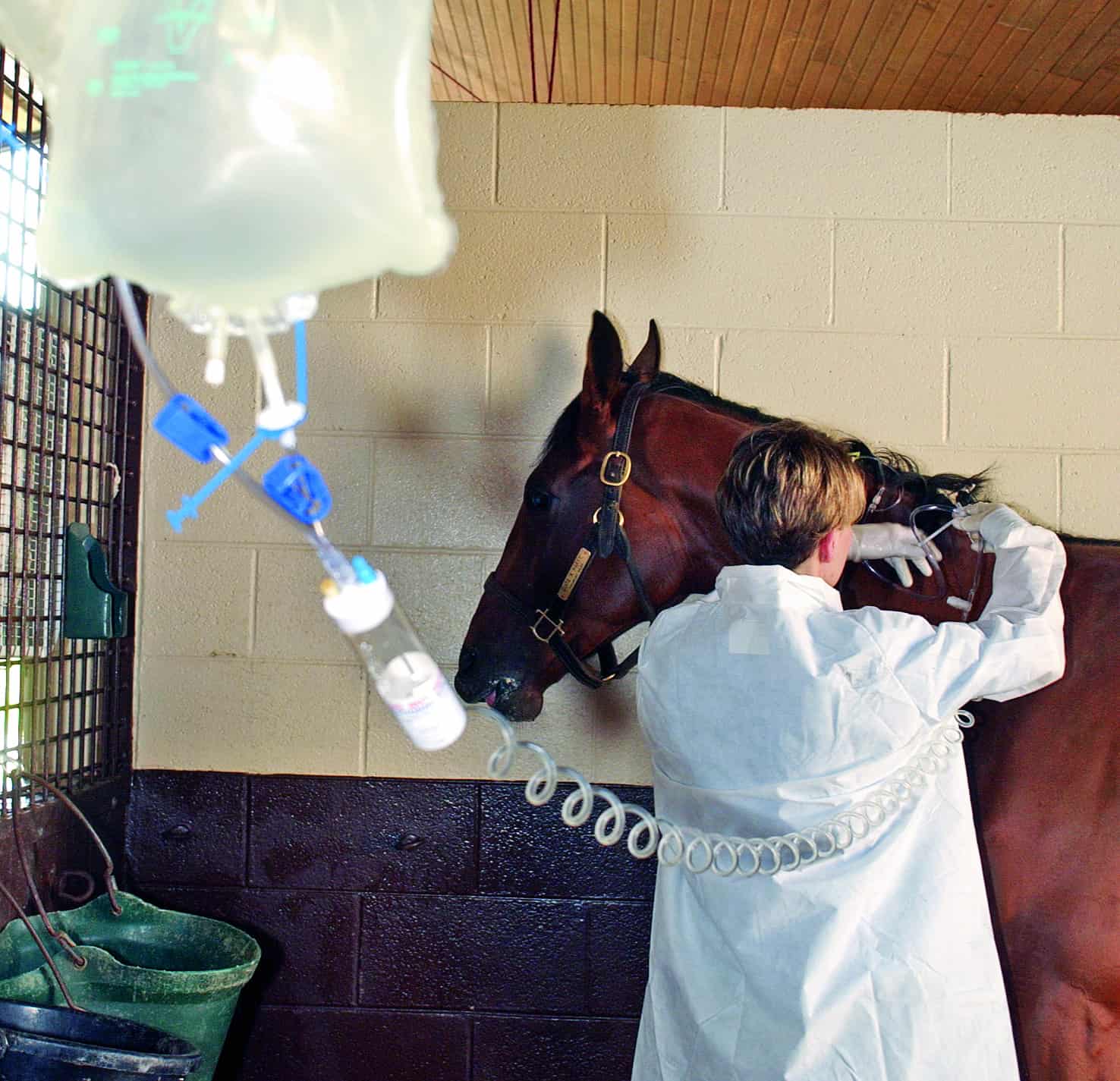Theiler’s Disease in Horses: What You Need to Know
- Topics: Diseases and Conditions, Liver Problems

Theiler’s disease, or equine serum hepatitis, is an infrequent but sometimes life-threatening liver disease of adult horses. Sir Arnold Theiler first described the disease in the early 1900s as a form of highly fatal acute liver failure that occurred four to 12 weeks after administration of equine antiserum, which was used as part of a vaccination strategy for African horse sickness. Since then, many additional cases of serum hepatitis have been reported, and a variety of blood products of equine origin have been associated with the disease.
In North America, the majority of recent cases have been associated with the administration of tetanus antitoxin, although commercial plasma products also have been incriminated. The number of horses that become ill following administration of a specific lot of incriminated blood product is estimated at 1 to 2%, although more horses might have subclinical disease.
An infectious agent, such as a virus, has long been suspected to cause this condition, and a new equine parvovirus was recently discovered in a horse with a fatal case of serum hepatitis. The parvovirus was present in the diseased horse and in the biologic product that it had received nine weeks earlier. Inoculation of experimental horses with the commercial product resulted in transmission of this newly discovered virus and in liver disease. Variation in individual immune responses to the virus could explain the low percentage of clinically affected horses
Create a free account with TheHorse.com to view this content.
TheHorse.com is home to thousands of free articles about horse health care. In order to access some of our exclusive free content, you must be signed into TheHorse.com.
Start your free account today!
Already have an account?
and continue reading.
Written by:
Equine Disease Quarterly
Related Articles
Stay on top of the most recent Horse Health news with















